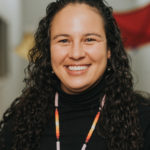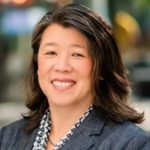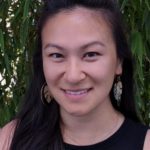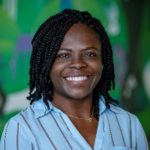
Sickle cell disease (SCD) is a group of blood conditions that affect hemoglobin, the part of red blood cells that delivers oxygen to cells in the body. In the United States, most people with SCD are of African or Hispanic heritage. However, the disease can affect anyone, especially people of southern European, Middle Eastern or Asian Indian heritage.
Seattle Children’s and Odessa Brown Children’s Clinic (OBCC) team have been treating patients with SCD for more than two decades. In that time, many lessons have been learned and as a result a new integrated Center of Excellence has been created for the care of patients with SCD at the hospital campus and at OBCC Othello, led by the Cancer and Blood Disorders Center and OBCC. As part of this Center of Excellence, a roadmap of program enhancements are in place to make progress towards improving and growing the Seattle Children’s Sickle Cell Disease Program to better serve patients with SCD and their families.

“Things are moving in a positive direction, and Seattle will soon be on the map of being a place for getting excellent and cutting-edge care for SCD where families feel seen and heard, knowing we come from similar cultural backgrounds,” said Dr. Shaquita Bell, senior medical director of OBCC. “It’s not just about their disease, but more importantly, it’s about these patients’ identities and who they are as a person that matters most.”
To help improve the Sickle Cell Disease Program, leaders from Seattle Children’s came together to discuss a vision of having integrated care done at the hospital campus via Dr. Mignon Loh, the new chief, division of pediatric hematology/oncology, at Seattle Children’s Cancer and Blood Disorders Center, to optimize coordinated care to patients from skilled people who understand and know the disease well.
“The idea was to have a multidisciplinary team that can work together, eliminating multiple appointments for patients so they get what they need in one single visit,” Dr. Loh said.
This required an expansion of services and additional resources for the SCD Program. These recently came into fruition in July 2022, when Seattle Children’s and OBCC created an innovative structure to providing current and preventative care to this growing population of patients and their families.

“I am thrilled that our hematology team will provide additional opportunities for care for outpatients and inpatients at the hospital campus, creating a safe space for patients in multiple places,” Dr. Loh said.
New faces, new perspectives
“We’re committed to further diversifying the team at Seattle Children’s,” Dr. Bell said. “Really exciting things are happening, especially with new members joining who bring new insights and ideas for building better processes. It’s not just one person’s vision but that of the entire team.”
The team has expanded with new nurse practitioners. A psychologist and full-time social worker were recently hired, and the program is currently recruiting for other positions on the team, including hematologists and a scheduler. The program is also boosting the training of nurses in how to support patients with SCD.
“The strong commitment from the hospital for resources that will expand our opportunities to care for inpatients and outpatients in an integrated manner, and across the lifespan for birth to adulthood is essential,” Dr. Loh explained. “Without the involvement of key players across the hospital campus and Othello, we risk further dividing the care for our patients who clearly benefit from services in both places.”
A new interim director, Dr. Katie Carlberg, will be providing oversight of the SCD Program. Carlberg is a board-certified pediatric hematologist who also cares for patients with another type of related blood disorder, thalassemia, which can also affect patients with sickle cell disease.

“I am humbled to be involved in these exciting changes and will focus my attention on how we can improve the patient and family experience,” Dr. Carlberg said. “My hope is to continue the work underway so Seattle Children’s and OBCC serves as a medical home where all families feel safe and welcomed.”
Hoyan Wong, a registered nurse who serves as a nurse coordinator for the program, said, “It’s been great to have such a supportive team that values each other’s input. “We often problem solve and brainstorm patient issues, and we discuss how to remove any barriers so patients can get the care that they need.”
Wong is currently working on an innovative database to help keep track of routine health maintenance visits for patients.
“Through this database I can see if a patient needs labs, visits, and preventative care appointments, and use the

information to contact families, help make appointments, and help ensure there are no barriers to care,” adds Wong.
Angela Leo-Nkoah, a nurse practitioner who cares for patients with SCD while staying at Seattle Children’s hospital campus, said “It’s great getting to see patients not just when they are admitted, but also at the clinic, transfusion unit, and other areas,” Leo-Nkoah said. “This builds trust and confidence in the system when the patient and parent know they will at least see a familiar face regardless of where they are in the hospital.”
Through her interactions with families, Leo-Nkoah has even witnessed a change of heart of those patients that were reluctant to certain aspects of care at first.

“Some of the things that I’ve heard from parents, and even patients themselves, is they feel that they can confide in me,” Leo-Nkoah said.
Commitment to diversity and the community
The expansion of the program gives the team great hope for the future.
Tackling the racial issues that are involved with SCD care is something that the team is committed to addressing. Program staff are required to participate in comprehensive diversity training and education across all groups that care for patients with SCD.
Bringing in community support is also key to helping those with SCD, as Dr. Bell explains.
“We’re also trying to pull in the local SCD community into having a voice on the program’s growth and vision, as our future needs to be informed by people impacted by this illness, and families and communities that support them,” Dr. Bell said. “For example, our relationship with Metropolitan Seattle Sickle Cell Task Force has blossomed and grown so much and that’s been wonderful to see. Our community needs to feel like they’re seen and heard and can drive changes, like bringing coordinated visits and diversity to our team.”
For the SCD care team, they are genuinely looking forward to the growth and new perspectives that will help reshape the way they care for patients.
To get involved and help us shape the future of the SCD Program, please visit www.seattlechildrens.org/sicklecell.
For all questions related to sickle cell disease |
Call 206-987-2106 during business hours (8 a.m. to 5 p.m., Monday through Friday) and ask for “the sickle cell team.”Call 206-987-2000 outside of business hours (on weekends, holidays and between 5 p.m. and 8 a.m. on weekdays). Ask for “the sickle cell team.” |
For health concerns not related to sickle cell disease |
Call your child’s primary care provider. If your child’s primary care provider is through OBCC, call the OBCC nurse line at 206-987-7291. |
If you need an interpreter |
Call 1-866-583-1527, choose your language and ask to speak to the department caring for your child at Seattle Children’s. This may be the sickle cell team, OBCC, the Cancer and Blood Disorders Center or another team. |

